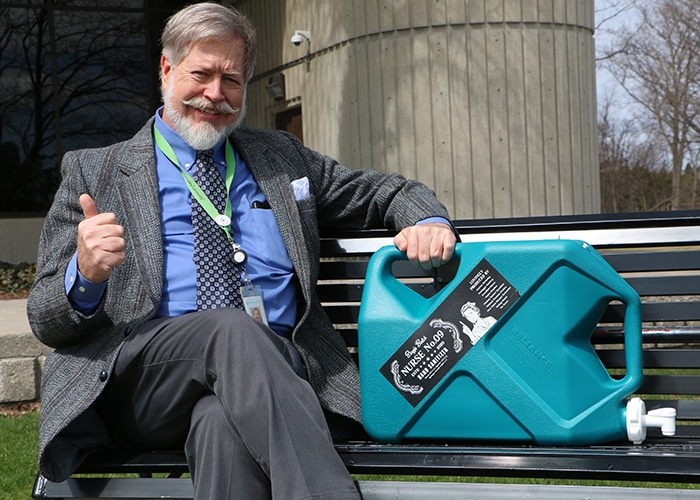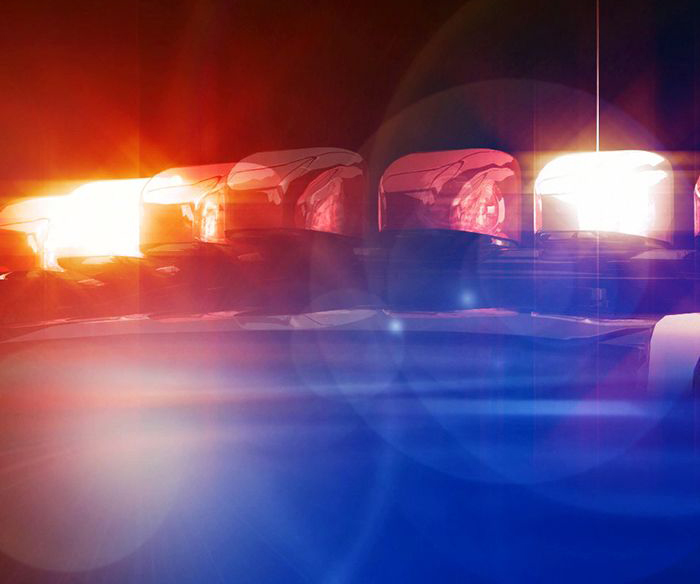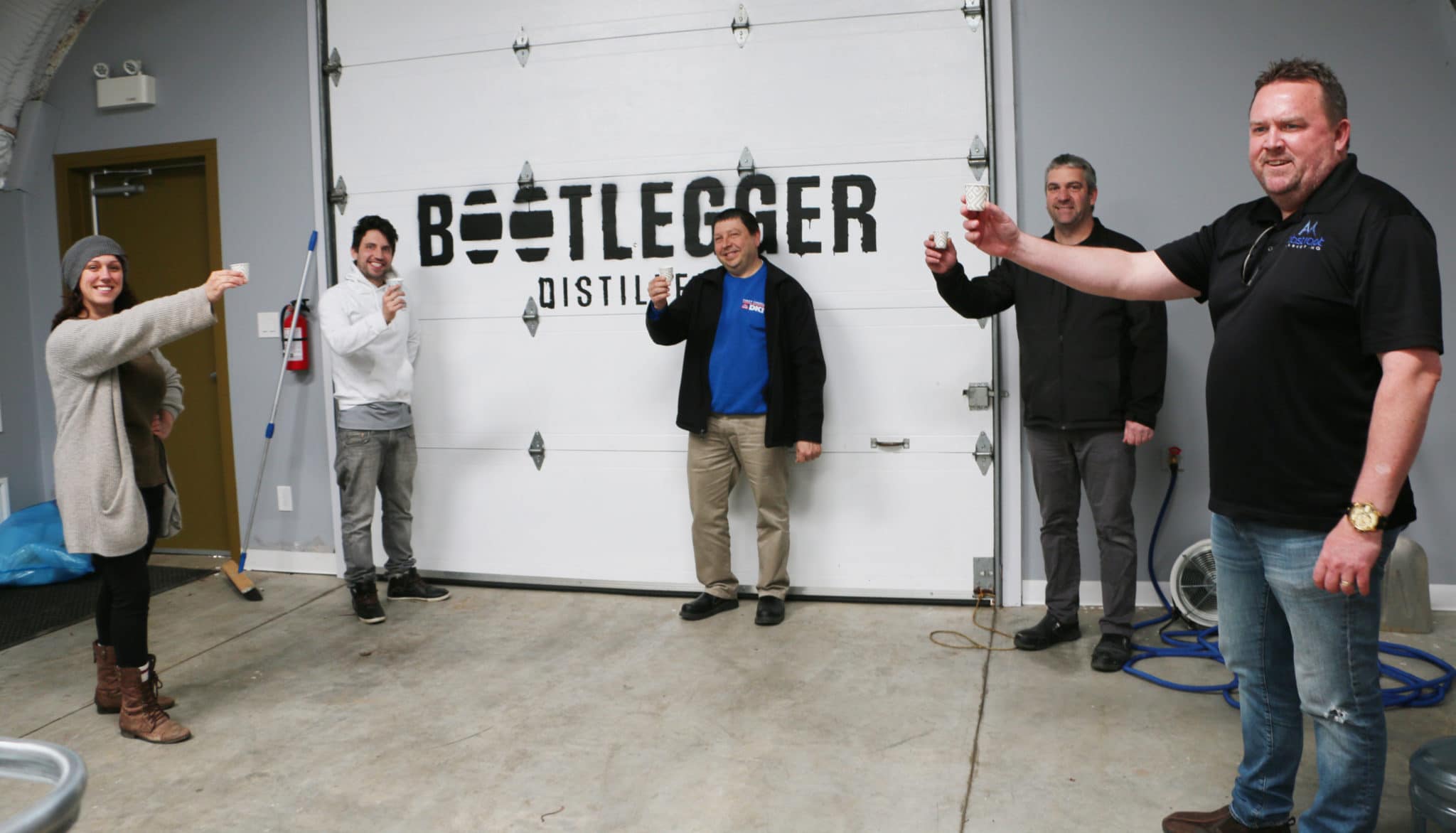
C-K businesses, community, deliver first batch of local hand sanitizer
By Jenna Cocullo
Family Service Kent is full of volunteers who are helping things run behind the scenes during the COVID-19 pandemic. Volunteer car drivers are transporting the most vulnerable to the hospital, volunteer shoppers are delivering groceries to seniors, and staff continue to provide in-person assessments to members of the community.
In the building there was one wall dispenser of hand sanitizer left and frontline staff without access to any.
Jyl Panjer, manager of Community Support Services at Family Service Kent, described the situation as pretty dire. On a recent morning, they were able to find one pump of Purell and nothing available online.
Although they understand that help is going where the COVID-19 hot spots are, and that there is a system for the distribution of supplies, it is hard not to feel like the volunteers are forgotten amongst those working in health services.
On Tuesday night, the makers of Nurse No. 9, Chatham-Kent’s new community-made hand sanitizer, saw Family Service Kent’s web post for help and by Wednesday afternoon it was one of the first places to receive a bottle of Nurse No. 9’s very first batch.
“Oh my gosh, it was pretty amazing when the hand sanitizer got delivered. It was one of those moments with tears in your eyes; that is how grateful I was. It makes such a huge difference in our community,” Panjer said.
Nurse No. 9 is a hand sanitizer project started by nine companies around Chatham-Kent, amid the COVID-19 crisis.
The name is to honour frontline workers and acknowledge the businesses involved in the product who all donated their time, resources or money to make it happen and are giving it away for free.
On March 15 Andrew Thiel, president of Abstract Marketing Inc., watched the news about the looming closures and how COVID-19 was going to affect workers, businesses, school children and much more.
“I felt kind of helpless but wanted to do something to help the community,” he said.
The next morning Thiel saw a report of how a distillery in Seattle was making hand sanitizer for local health care workers and first responders. And a little over two weeks later, Nurse No. 9 would be complete.
“I thought, ‘Hey, I know a lot of people in different industries; this is something I could probably pull off,’” he said.
That morning, Thiel called a long-time friend working at Greenfield Global, Canada’s largest producer of alcohol, to discuss the idea and got an immediate positive reaction. Within the hour, the company committed to a 210-litre barrel donation of commercial alcohol.
The next step was to find someone that could receive the alcohol, as it is a controlled substance, so he reached out to Stuart McFadden, director of Economic Development for the Municipality of Chatham-Kent to put him in contact with local distilleries.
“All I said is ‘What do you need?’ and connected them with a distiller in Bothwell. It really isn’t us, we just did our job and that is what we hope for. They are the real heroes and we are just here to provide a service,” McFadden said.
Mike Brnadic, owner of Bootlegger Distillery, a two-year-old business in Bothwell, donated his time and space to make the product after finding a suitable recipe through the World Health Organization.
“This community means a lot to me, I don’t care if I have to work around the clock, count me in,” Brnadic said.
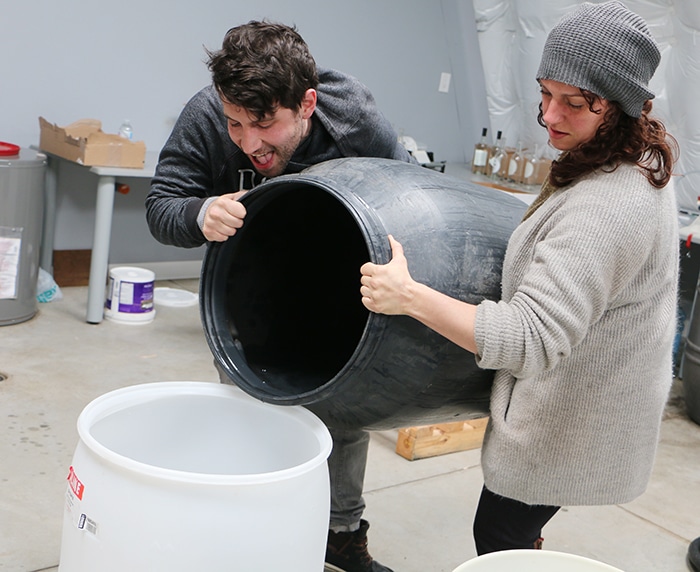
Platinum Produce donated the peroxide required for the recipe, and Heritage Dental, Chatham Denture Specialists, and Fox Farms helped out financially with purchasing the glycerol, a liquid used to help the substance stick to the hands.
Brian Weber at First Choice Disaster Restoration DKI took care of all the transport needs while Rob Schepanowski at Impact Signs made and printed the labels.
Former Chatham-Kent residents, Brittany Shettel, living in Ottawa, and Joy Kilby, from Barrie, helped shave two weeks off the production process by going out to purchase and ship the containers from Cabela’s Hunting Store, in order to avoid a 17-day delivery delay.
“I definitely wanted to make sure that they could get this hand sanitizer out to all my Chathamites on the front lines and am grateful I could take part in this helpful project for the community,” said Shettel.
Five days later, the containers were received, labelled, filled and delivered to CK Public Health for distribution.
“People of Chatham-Kent are very special and help far more readily than many other communities across Canada,” said medical officer of health Dr. David Colby.
Colby said that most of the first batch will be handed out to institutions involved with food preparation and is asking that organizations not send Public Health requests for the hand sanitizer, as they will be the ones assessing the need and reaching out to various groups.
Thiel said Greenfield Global and the mayor’s office worked together on donating an additional 1,000 litres for an even bigger second batch.
“We’ve been around for 30 years and our Chatham-Kent facility is around 20 years old. We try to be valued members of our community where we have all our plants,” said John Wilkinson, member on the board of directors for Greenfield.
The first batch produced 260 liters of hand sanitizer and the second will produce around 1,400-1,500 liters for the community.
Brnadic said when Greenfield’s alcohol supplies run out, he is willing to use his own product for the hand sanitizer.
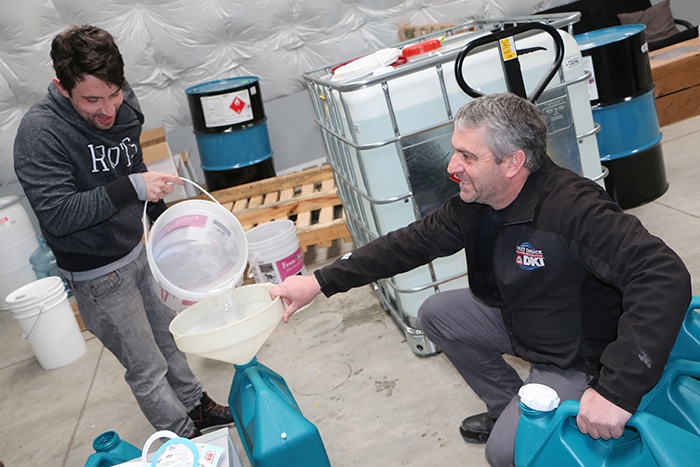
Wilkinson said with Chatham-Kent as Greenfield’s flagship facility, they are focusing on keeping their employees as healthy as possible so they can continue to meet ethanol demands that have “gone through the roof” since the onset of the pandemic.
“We will be optimizing our plants to make that alcohol as quickly as possible and finding a creative solution to make more supply. We can’t build something like that overnight,” Wilkinson said.
Panjer said many frontline volunteers are still facing a shortage of face masks and gloves as they make contact every day with clients, seniors and people with unique needs. They are down to just a handful of those items themselves.
Panjer said with suppliers facing backlogs and being put at the bottom of waiting lists, which understandably have put hospitals and other larger organizations first, being able to receive that kind of community support matters that much more.
“I just really want to thank them for their creativity and stepping up and filling the gap and being willing to share. A lot of people are scared and hanging onto everything they have. But these people are creating something to give away and making their community better for it,” Panjer said.
“I am so incredibly thankful to the community leaders who came up with this idea and for stepping up. And I hope they receive that message loud and clear from all of us,” Colby said.
